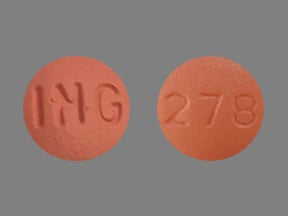
Diclofenac Sodium ER Coupons & Savings Card – Discount Prices from $22.48
Diclofenac is a prescription medication classified as a non-steroidal anti-inflammatory drug (NSAID). It is commonly used to alleviate pain, swelling, and joint stiffness associated with various conditions such as osteoarthritis, rheumatoid arthritis, ankylosing spondylitis, migraine attacks, and menstrual cramps. By inhibiting the production of certain proteins and natural substances in the body that contribute to inflammation, diclofenac effectively reduces these symptoms, thereby helping patients engage more comfortably in their daily activities.
Available in sustained-action and delayed-release tablet forms, as well as a powder packet for oral solution, diclofenac is effective for managing mild to moderate pain. However, patients should be aware of potential serious side effects, including risks of stroke, heart attack, and stomach bleeds, especially with higher doses or prolonged use. It is important to consult with a healthcare provider for personalized advice and to explore non-drug treatments or additional medications if necessary.
Our coupons are free to use. Before paying, show the pharmacist your Diclofenac Sodium ER savings card to get your free discount. Use our filters below to edit the prescription box to match your needs. The Diclofenac Sodium ER prices will update based on your prescription needs. Above our Diclofenac Sodium ER coupons, you can change your location to see pharmacy prices and costs in other areas. We're here to help you buy Diclofenac Sodium ER at the lowest price with our prescription discount card.
My prescription
Edit
100MG, Diclofenac Sodium ER (30 Tablet Extended Release 24 Hours)
Select pharmacy

CVS
$22.48
COUPON PRICE
Walmart
$27.90
COUPON PRICE
Walgreens
$28.86
COUPON PRICE
Albertsons
$33.41
COUPON PRICEDiclofenac Sodium ER savings card
Show this card to your pharmacist
CVS
$22.48
BIN
ID
PCN
GRP
019876
LHB9497C21
CHIPPO
LHX
Powered by
Diclofenac is a prescription medication classified as a non-steroidal anti-inflammatory drug (NSAID). It is commonly used to alleviate pain, swelling, and joint stiffness associated with various conditions such as osteoarthritis, rheumatoid arthritis, ankylosing spondylitis, migraine attacks, and menstrual cramps. By inhibiting the production of certain proteins and natural substances in the body that contribute to inflammation, diclofenac effectively reduces these symptoms, thereby helping patients engage more comfortably in their daily activities.
Available in sustained-action and delayed-release tablet forms, as well as a powder packet for oral solution, diclofenac is effective for managing mild to moderate pain. However, patients should be aware of potential serious side effects, including risks of stroke, heart attack, and stomach bleeds, especially with higher doses or prolonged use. It is important to consult with a healthcare provider for personalized advice and to explore non-drug treatments or additional medications if necessary.
Our coupons are free to use. Before paying, show the pharmacist your Diclofenac Sodium ER savings card to get your free discount. Use our filters below to edit the prescription box to match your needs. The Diclofenac Sodium ER prices will update based on your prescription needs. Above our Diclofenac Sodium ER coupons, you can change your location to see pharmacy prices and costs in other areas. We're here to help you buy Diclofenac Sodium ER at the lowest price with our prescription discount card.
Diclofenac Sodium ER dosage forms
Use our Diclofenac Sodium ER 100MG coupon with prices from $22.48 for 30 Tablet Extended Release 24 Hours. You can also use our Diclofenac Sodium ER 100MG coupon with prices from $14.35 for 14 Tablet Extended Release 24 Hours. We have a Diclofenac Sodium ER 100MG coupon with prices from $26.66 for 60 Tablet Extended Release 24 Hours. You can use our Diclofenac Sodium ER 100MG coupon with prices from $38.85 for 90 Tablet Extended Release 24 Hours.
Dosage Quantity Price from Per unit 100MG 30 Tablet Extended Release 24 Hours $22.48 $0.75 100MG 14 Tablet Extended Release 24 Hours $14.35 $1.02 100MG 60 Tablet Extended Release 24 Hours $26.66 $0.44 100MG 90 Tablet Extended Release 24 Hours $38.85 $0.43 100MG 180 Tablet Extended Release 24 Hours $51.39 $0.28
| Dosage | Quantity | Price from | Per unit |
|---|---|---|---|
| 100MG | 30 Tablet Extended Release 24 Hours | $22.48 | $0.75 |
| 100MG | 14 Tablet Extended Release 24 Hours | $14.35 | $1.02 |
| 100MG | 60 Tablet Extended Release 24 Hours | $26.66 | $0.44 |
| 100MG | 90 Tablet Extended Release 24 Hours | $38.85 | $0.43 |
| 100MG | 180 Tablet Extended Release 24 Hours | $51.39 | $0.28 |
